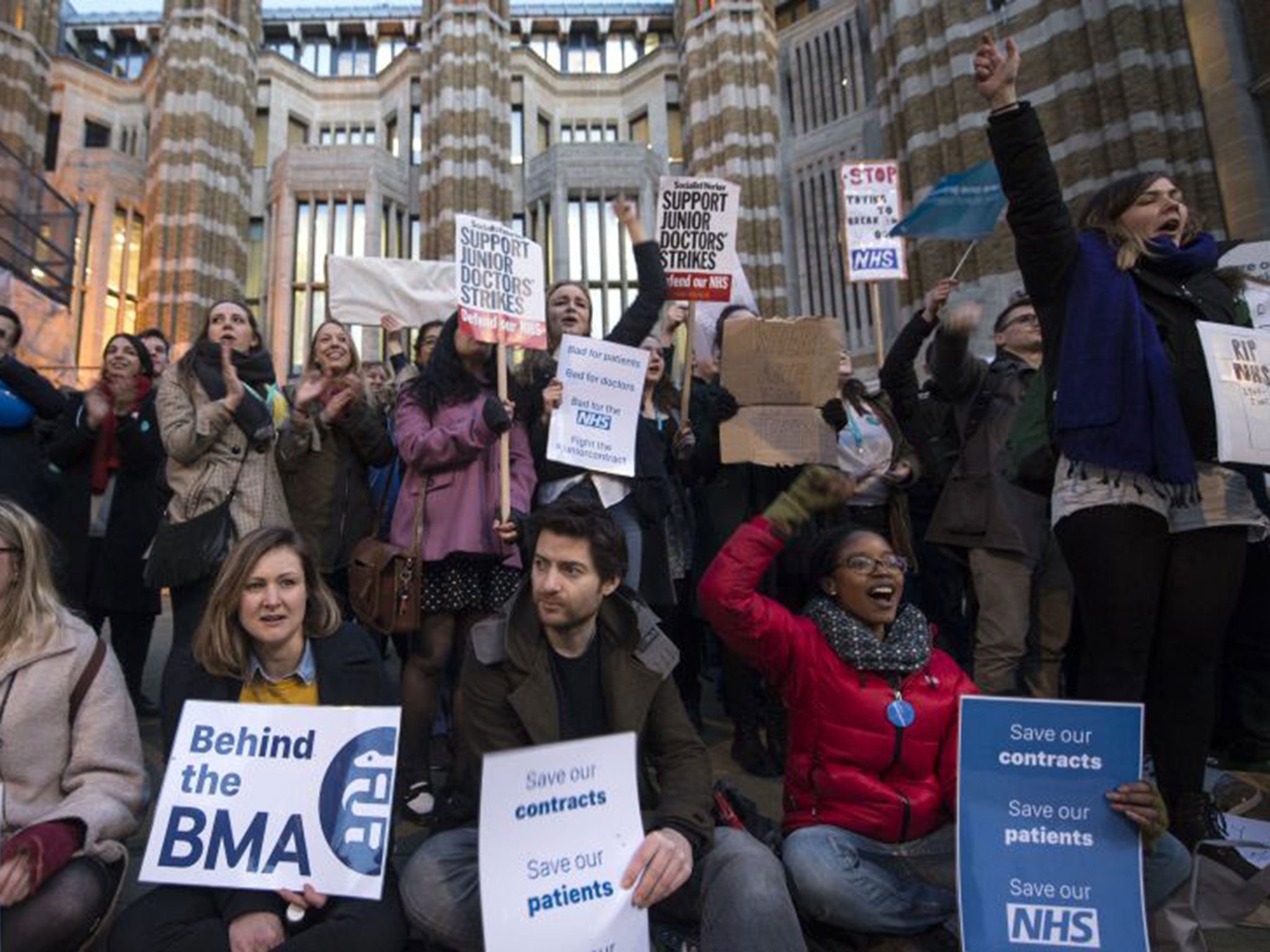Junior doctors Q&A: What’s in the new contract? What can they do about it?
Not signing means resigning from the NHS – a drastic step for people who have trained for years to do what they do

What does imposition mean?
The contractual terms under which NHS staff work are normally agreed between the Government and the relevant union. Because the Government now says its negotiations with doctors’ union the BMA have nowhere left to go, it is bypassing this convention and will present a contract to junior doctors that their union (and the vast majority of the workforce) do not approve of. This come into effect for all new doctors starting in August and for other doctors when their working circumstances change – which happens regularly in medicine.
What can junior doctors do about it?
They could not sign their contracts. But that means resigning from the NHS – a drastic step for people who have trained for years to do what they do. They could of course continue to practise medicine in another country which has working conditions they prefer. Neither Scotland, Wales or Northern Ireland has adopted the new contract, and Australia and Canada remain popular destinations.
What about more strikes?
That is also an option. The Government has not produced a contract that satisfies the BMA under the pressure of two strikes and it is hard to see that they would commit a U-turn under the pressure of further ones. However, the past two strikes have been non-emergency care only. The BMA could still threaten a full walkout and repeated strikes – in essence long-term disruption to NHS services. This would certainly raise the stakes, but would also risk turning the public against junior doctors.
What’s in the new contract?
Despite its rejection of terms, the BMA has actually won many concessions over the past few months. The key changes involve out-of-hours pay. Doctors will now get premium rates for all hours outside 7am to 9pm Monday to Friday and 7am to 5pm Saturday. This is much less than they get now, but more than they were originally offered in the negotiations. They will also get a 13.5 per cent rise in their basic pay. However, they are going to have to work more unsocial hours, and there are still concerns that those doctors that work the most – like A&E and maternity medics – will see the heaviest dent to their pay packet, though the Government has pledged time-limited protection for salaries.
Subscribe to Independent Premium to bookmark this article
Want to bookmark your favourite articles and stories to read or reference later? Start your Independent Premium subscription today.

Join our commenting forum
Join thought-provoking conversations, follow other Independent readers and see their replies